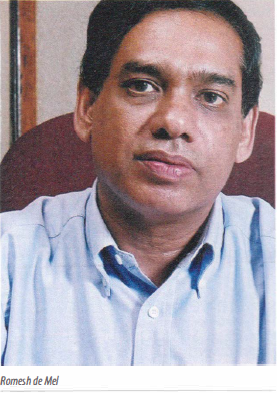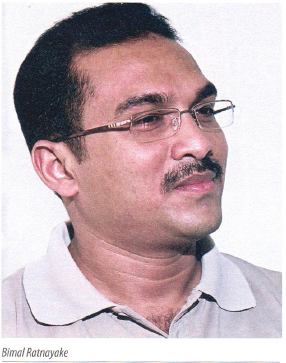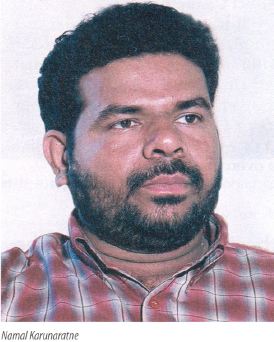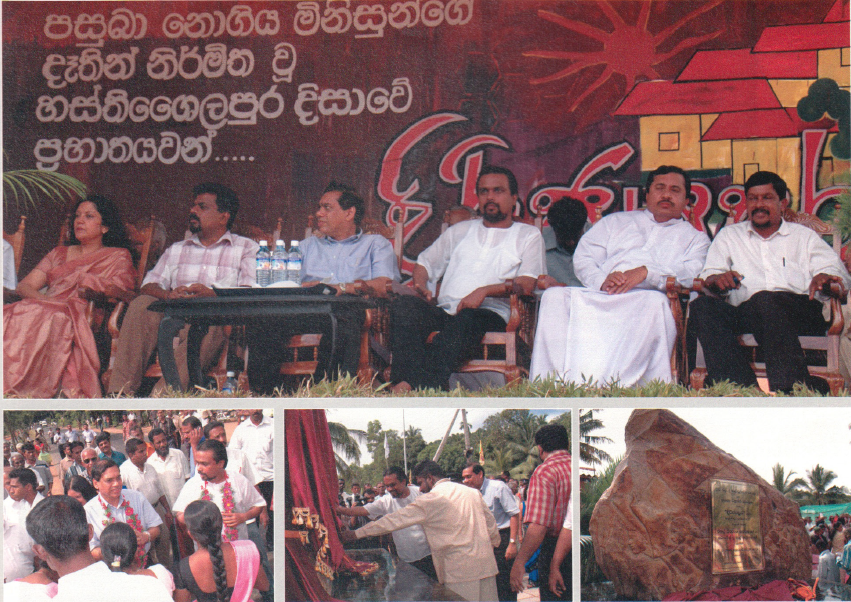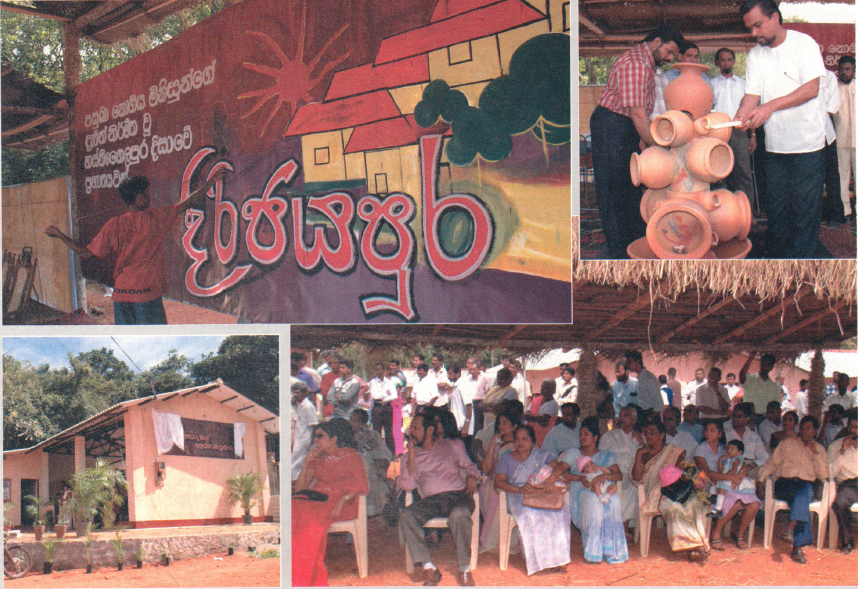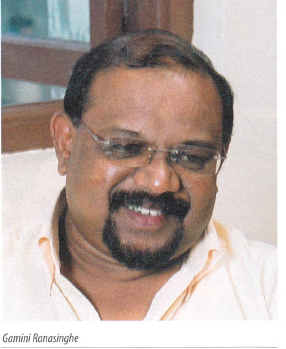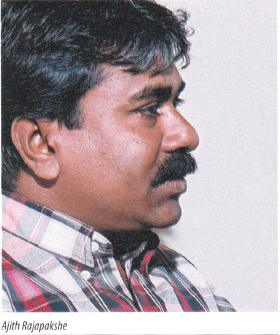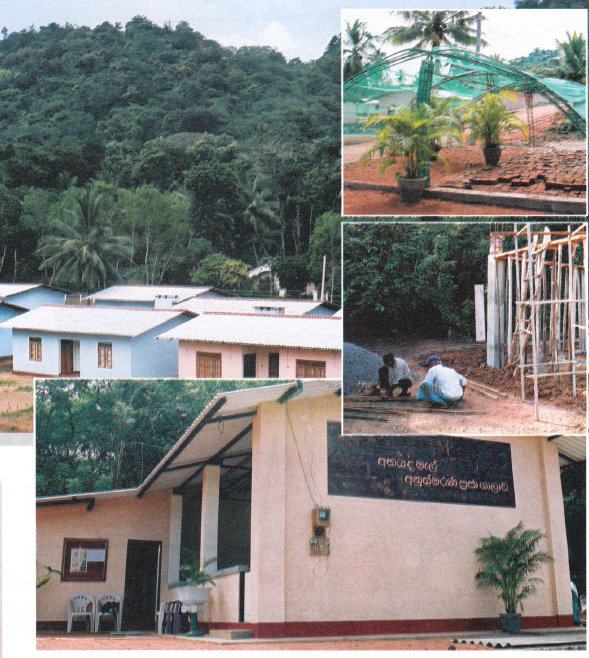This is the story of a housing scheme that was funded by H L de Mel and Company and built by the JVP A story of a model project – involving the labor, endurance, and hard work of those dedicated to making a difference in the lives of people who need it the most.
Viranga Hewage and Anisha Niyas report.
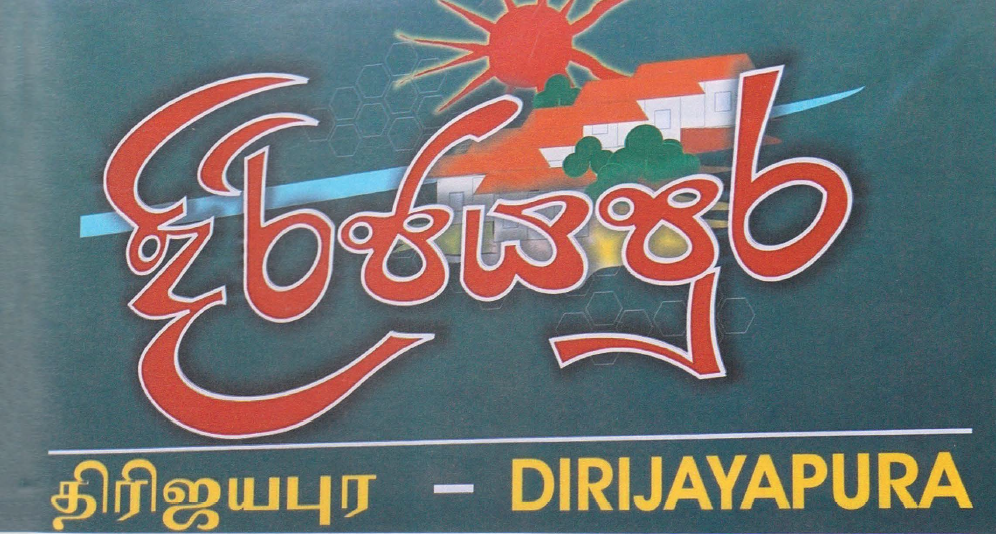
The Dirijayapura Housing scheme is a totally different concept. It draws attention to the fact that while providing shelter to the tsunami affected is important and necessary, those who live elsewhere in the country and suffer the same fate through poverty should not be ignored. “We took on this project to build 80 houses in Melsiripura in the Kurunegala district. The funds for the housing scheme, a total of Rs19 million, came from H L De Mel and Company,” said Namal Karunaratne, Member of Parliament for JVP, Kurunegala District and Organizer of the Housing Scheme Project Committee. “It was a big challenge for us to complete this project using Rs 19 million. The government estimate for valuation is Rs 525,000 per house. Recipients of these houses were very poor people, whose day to day existence was a struggle they tried hard to overcome,” he added.
“We handed over this project to the JVP because we felt they were reliable. They also had volunteers, which brought the cost of the project down considerably. The scheme, as you can see for yourself, has been successful beyond our expectations”
“The business community has always promoted the fact that business and the JVP cannot co – exist. In this project we have shattered such ideas by working with a private business entity and the results are their for all to see.”
A committee was established by the JVP to oversee all aspects of coordination and ensure the efficiency of the project. Shaastravedi Ragama Sugathananda Thero and Gamini Tuduwage were the Chairman and Financial Coordinator respectively, while Kasun Kariyawasam and Jayathilake Bandara served as Committee Members. Anura Dissanayake, former Minister of Agriculture, Livestock, Lands and Irrigation and Bimal Ratnayake, Member of Parliament were advisors to the committee. Completed in a record 10 months, each house is 680 sq ft and is built on 15 perches of land and includes two bedrooms, a living room, a dining room, a bathroom and a kitchen with electricity and running water. The scheme also includes a playground, a sports field, a community center, Montessori and a stage for cultural activities. The houses were declared open by Wimal Weerawansa and Romesh de Mel on the 20th of February 2006 amidst a gathering of over 1,500 people.
“The criteria for choosing ideal candidates were simple. We had a committee with the inclusion of divisional secretaries and other relevant authorities, who developed a selection criteria. This was to make sure that the recipients of the houses were needy and vulnerable people. A quota of 10% was left for long standing estate employees without permanent homes from H L De Mel and Company while the rest were given to the needy from the district of Kurunegala. They were chosen irrespective of political affiliation, race or religious belief,” said Karunaratne. “We personally saw the makeshift shelters they lived in and selected the ideal candidates,” he further added. “If there were three families living in a single house, we took out one family and gave them a house. There were three blind people, one of which was a member of the armed forces who was injured by a land mine, there were people who were sleeping in cemeteries, on river banks, in stone caves – basically people who were living in extremely poor conditions.” The main challenge faced by the committee was to complete the project in a cost effective manner. They solved the issue by ensuring that the recipients were fully involved in every stage of the project.
Firm believers in helping people to help themselves, the JVP conducted a skills assessment exercise to see what skilled labour the recipients could contribute to the building of their houses.
“We wanted the people to be as involved in the project as possible. Everyone contributed to the construction of the houses in 80 different ways, whether it was through unskilled labor or helping to find sand, mix cement or simply helping to coordinate the work. We worked as a team and built this scheme, brick by brick. The result of this was that we could construct each house at about 50% less than the tota I government valuation,” Ajith Rajapakshe, Member of the Dirijayapura Housing Project Committee and JVP Organizer for Hiriyala electorate said. The name of the housing scheme, Dirijayapura, which means ‘through struggle we achieve victory,’ captures the essence of how it was built. The JVP did not focus only on building a housing scheme, but also took steps to ensure that they didn’t harm the environment and natural resources in the process. They sought the expertise of the Land Use and Policy Planning Division, and environmental conservationists on how to use both scientific and eco friendly methods to build the houses. “The housing scheme is surrounded by mountains as well as a protected forest reserve. So we have placed a tremendous amount of importance on creating awareness of the environment amongst the residents and workers. We have not allowed anyone to harm the surrounding environment when building the houses. We made that very clear, the residents have not even plucked a single coconut from those lands or cut a branch from a tree” Rajapakshe said. The recipients of the houses participated in an awareness program on conserving the environment. This was
“Recipients of these houses were very poor people, whose day to day existence was a struggle they tried hard to overcome”
held with the support of environmental conservationists Piyal Parakrama, Dr. Wasantha Bandara and Udula Bandara Aushadhahami. Apart from teaching eco friendly construction methods to the people, they also recommended that the community grow 16 different kinds of trees in their gardens. They also made sure that instead of walls, the community marked boundaries by growing flowering shrubs and trees an effort to ensure not only a pleasant environment but also to build a sense of “community” within the housing scheme. One of the more surprising results of this 10-month project is the dwindling number of alcoholics within the scheme. The JVP, realizing the problem of alcoholism, conducted an awareness program to help eradicate the problem. “We found that 70% of the community in the housing scheme were alcoholics. After working with them for 10 months, we had formed strong relationships. This helped us to reform them by changing their attitudes and teaching them the importance of earning a honest living,” Karunaratne said.
The majority of the people living in the housing scheme work as carpenters, masons and as daily labourers. A program was implemented to help uplift the economic status of each family. The women were introduced to a self-employment scheme where a few perches of land were set aside for small scale horticulture and mushroom growing projects, to help generate additional income. This was done with the support of the Wayamba Entrepreneurship Association. “We want this self employment scheme to result in Melsiripura being renowned for its horticulture, as Kajugama is famous for its Cashew nuts,” Karunaratne said. H L De Mel and Company invested in this scheme not as a social responsibility project but as a service to the people of Melsiripura.
“My aunt, Eileen De Mel, donated Rs19 million to the company to build houses as it has always been her dream to do something for the people of Melsiripura,” Ramesh De Mel, Managing Director, H L De Mel and Company stated. Commenting on the reason why he chose to work with the JVP as opposed to other organizations he stated they were reliable and easy to work with. “We didn’t want to build just another slum. We wanted it to be high quality, because these people deserve it. We handed over this project to the JVP because we felt they were reliable. They also had volunteers, which brought the cost of the project down considerably. The scheme, as you can see for yourself, has been successful beyond our expectations,” De Mel said. “We were able to build a strong relationship with the JVP. We didn’t have a single problem working with them and not one day’s trouble. The entire process was transparent and organized to the smallest detail,” Gamini Ranasinghe, Financial Manager, H L De Mel and Company stated. The project is now worth more than Rs60 million in total and the company is in the process of adding more facilities. They also plan to assess the needs of the community and develop projects to ensure a steady income and raise the community’s standard of living.
“We would like to thank John Seneviratne, Minister of Power and Energy, Dinesh Goonerwardena, Minister of Urban Development and Water Supply, former Plantation minister Anura Priyadarshana Yapa and TB Ekanayake, Minister of Road Development for their support in making this project a success,” Rajapakshe stated. The root of this project’s success is that both the JVP and H L De Mel and Company have always had one focus in mind, they are not doing this for awards or fame but because they love the country and its people. The business community has always promoted the fact that business and the JVP cannot co – exist. In this project we have shattered such ideas by working with a private business entity and the results are their for all to see, according to Bimal Ratnayake.
“We were able to build a strong relationship with the JVP. We didn’t have a single problem working with them and not one day’s trouble.”
